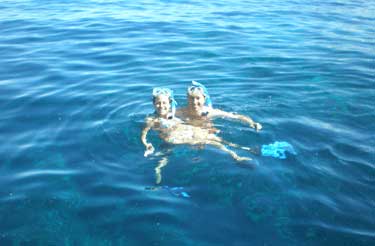
Travel during the holiday season is expected to increase this year, up from the 93.3 million travelers who ventured at least 50 miles away from home this time last year, according to AAA. Although many medical professionals recommend avoiding traveling during recovery, it seems practically unavoidable during this family-centered season. However, just because you might be going against this advice, it doesn’t mean you should throw all caution to the wind. These tips break down some important considerations for traveling after heart surgery.

The National Health Service recommends checking with your airline BEFORE flying, since companies have varying regulations on post-surgery travelers. However, the Civilian Aviation Authority says that 10 to 14 days is sufficient after chest surgery or a coronary artery bypass graft. After any heart operation, patients should remain moderately active to keep the heart pumping. Avoid tight clothing to prevent circulation inhibition as well.
During your early recovery, you’ll want to maintain only moderate activity at your destination. If your destination is the Midwest, consider staying at Wisconsin Dells resorts to take advantage of spas and other relaxation-enhancing amenities. In warmer weather conditions, swimming can also be a fun, light activity to stay active and cool.
At this point, you may be close to a full recovery but not quite there yet. (Hopefully, you will have taken my advice and attended a great cardiac rehab program.) Mostly, you’ll want to make sure to avoid overworking your heart. Get a full examination — BEFORE your trip — so your doctor can alert you of specific things to look out for. Taking medication like Dramamine isn’t recommended for flying, since you may sleep in a circulation-cutting position for an extended period of time. If you get nervous on airplanes or other forms of transportation, consider anti-anxiety medication instead, so you can keep your heart rate low without compromising your circulation.
Since being active can be difficult in an airplane, request to sit either in the very front or very back of the plane, so you can stretch your legs as often as possible. In the meantime, drink plenty of water, since the low humidity on planes increases the risk of dehydration.
Traveling itself may only come with minor considerations at this stage, such as staying hydrated and active. However, you’ll want to keep a close eye on your diet once you reach your destination. Especially during the holiday season, many people indulge in sugar-filled, high-fat foods. The American Heart Association recommends having less than 7 percent of saturated fat out of your total daily calories. Trans fats should comprise less than 1 percent of your daily intake, while cholesterol should never exceed 300 mg. The best way to reduce your saturated and trans fats intake is to reduce the amount of butter or margarine added to your food when cooking. Trim fat off of your meat or choose lean meats with under 10 percent fat to further cut back.
Right about this time… I traveled to Hawaii with Robyn, my wife, to celebrate my recovery. It was an amazing trip (see picture below).

At 10 months post-op, I went on a two-week business trip through five cities in Europe. During the trip, I had some chest pain — from the lifting and the moving of luggage in awkward positions — so I carried a bottle of Ibuprofen with me at all times to help ease the discomfort.
At the one year mark, many patients have reached full recovery status. Still, it’s always important to continue taking precautions when traveling. Make sure your travel insurance is up to date, since recent surgeries can often raise rates or lead to a higher copay. Access to medical care is highly important when you’re away from home, so feel free to check in with a doctor if anything feels abnormal.
I hope this timeline helps you plan your travel after heart surgery.
Keep on tickin!
Adam
Adam Pick is a heart valve patient and author of The Patient's Guide To Heart Valve Surgery. In 2006, Adam founded HeartValveSurgery.com to educate and empower patients. This award-winning website has helped over 10 million people fight heart valve disease. Adam has been featured by the American Heart Association and Medical News Today. Adam Pick is a heart valve patient and author of The Patient's Guide To Heart Valve Surgery. In 2006, Adam founded HeartValveSurgery.com to educate and empower patients. This award-winning website has helped over 10 million people fight heart valve disease. Adam has been featured by the American Heart Association and Medical News Today.